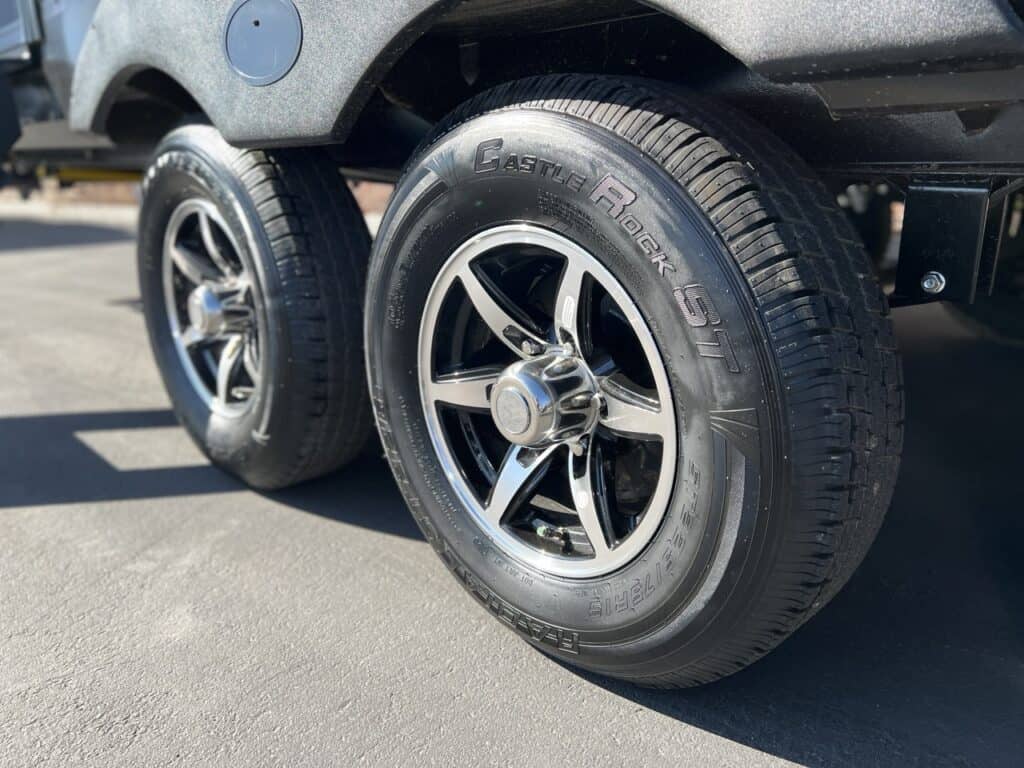
Proper tire pressures and tire selection can save the day!
An RV trailer tire fail will instantly put a big damper on what would otherwise be a fun, relaxing outing. Swapping out the damaged tire on the camper with the spare not only takes time, it means incurring the added expense of having the flat repaired or replaced.
Paying close attention to your RV trailer’s tires before hitting the road is the best way to prevent such roadside repairs and unexpected replacement costs.
There are multiple factors that can cause a trailer tire failure. It can be the age of the tire, or damage caused by punctures by an object. Perhaps it’s running the wrong air pressure, or you hit a curb or a pothole. Finally, mixed tire types/sizes, or carrying too heavy a load for the tire can cause failure. It could also be a combination of any or all of the above.
There’s not much you can do to prevent a trailer tire being punctured. But the other contributors to RV trailer tire failure are easily addressed.
Proper RV Trailer Tire Inflation
Maintaining proper trailer tire inflation is critical to tire integrity. Over- and under-inflation of trailer tires are the leading causes of blowouts and failures according to RV tire manufacturers and tire dealers.
To find the proper inflation, weigh the fully loaded coach on all four corners at a certified Cat scale to get the weight of the RV on all the tires. Then use this information and inflation tables from the manufacturer of the tires on the RV to determine how much to inflate them.
“Proper inflation is essential to everything we ask tires to do,” says TJ Campbell, the Tire Information & Testing Manager for Tire Rack. “If it has to be one or the other, it’s better to be overinflated than even one-pound underinflated. Underinflation can quickly lead to tire failure, reduced tread life, decreased fuel economy, and more. It’s one of the most common causes we see when handling customer concerns over blowouts and other forms of failure.
“Trailer tires should be inflated to the maximum cold-air pressure indicated on the sidewall,” says TJ. “Tire pressures should always be checked with an accurate digital gauge before the trailer hits the road—or after the tires have cooled down.”
How Often Should You Check?
Under-inflated, over-inflated, or over-loaded tires can’t properly grip driving surfaces. This leads to poor handling, vehicle instability, and heat build-up in the sidewall and tread area—all of which cause the tire’s structural components to break down and can lead to tire failure.
Static travel trailer and RV tire inflation pressures should be checked at least once a month. “Generally, that will be the max inflation for the tires’ load range, which is listed on the sidewall of the tire,” says TJ. “That’s 50 psi for load range C (6-ply rated), 65 psi for load range D (8-ply rated), and 80 psi for load range E (10-ply rated).”
We should note here that the particular manufacturer’s inflation tables takes priority over any “rule of thumb” or general estimate regarding exact inflation psi. You should always adhere to the pressure indicated on the manufacturer’s inflation table—that’s why thorough, accurate weights are so critical.
If the tires are in use, check them before you hit the road and prior to leaving the campsite. It doesn’t take much effort to check every day you plan to travel. The trade-off for those few minutes is well worth it.
Matching Trailer Tires
Another contributing factor to trailer tire failures is mismatched tires. This is a common issue on older trailers where the owner, or previous owner, only replaced one or two tires and didn’t bother to make sure they were exactly the same size, brand, and load rating as the others.
The trailer’s tires should have a load carrying capacity (rating/range) at least 10-percent greater than the trailer’s gross vehicle weight rating (GVWR). Again, weigh the trailer (or motorhome) at a certified CAT scale when loaded down for a trip to avoid overloading.
Making sure the trailer tires are the same on all axles is very important to tire longevity. Mismatching will place added pressure on the tire(s) supporting the load.
Tire and RV manufacturers recommend that if one tire on a tandem- or triple-axle trailer fails due to some factor other than a simple puncture, it’s best to replace all the tires on that side. That’s because they were probably subjected to excessive loading before that one tire failed.
Tire Age
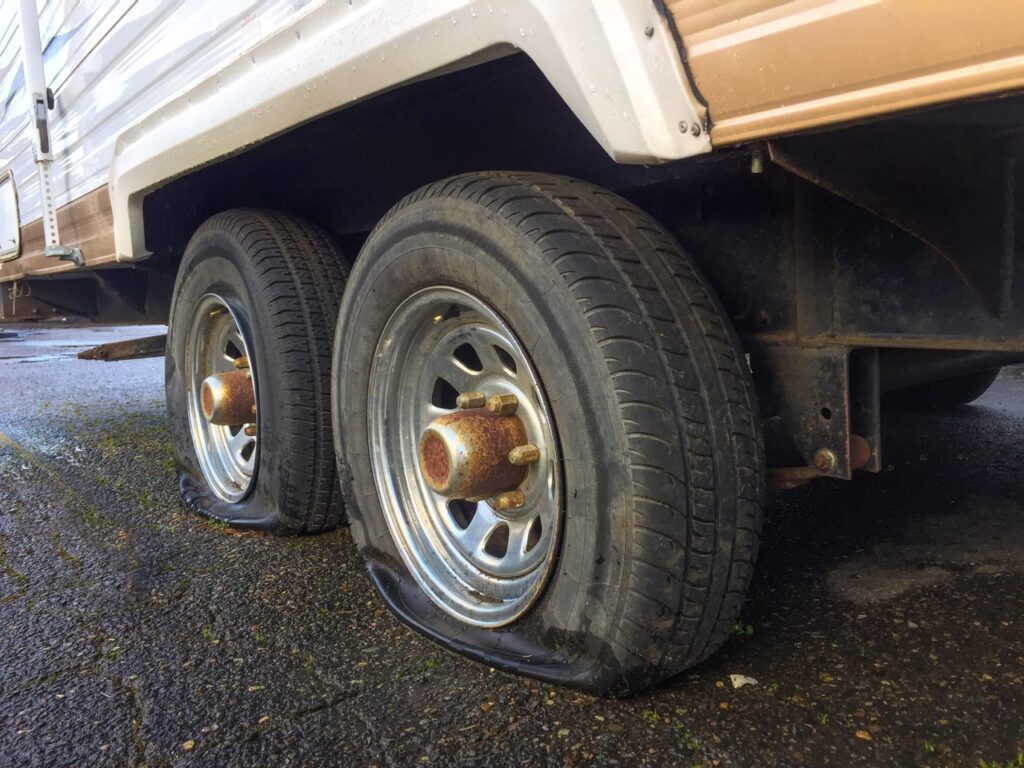
Age is another factor that contributes to a trailer tire failure. Unlike the tires under tow vehicles or passenger cars that wear out from mileage, trailer tires usually succumb to age.
The general consensus among trailer tire manufactures is to replace the tires every 3–5 years. Of course, their goal is to sell tires. A good rule of thumb is that tires age out after 7 years. And that’s even if they appear to be in good shape.
If you want to check the age of a tire, locate the Department of Transportation (DOT) tire identification number (TIN). This is a string of numbers that is imprinted on the tire’s sidewall. The numbers represent the tire manufacturer/plant code, the tire size code, the manufacturer’s internal code, and the date the tires were made. The date is noted in the last four digits. The first two represent the week of the year they were made. The last two depict the year they were manufactured.
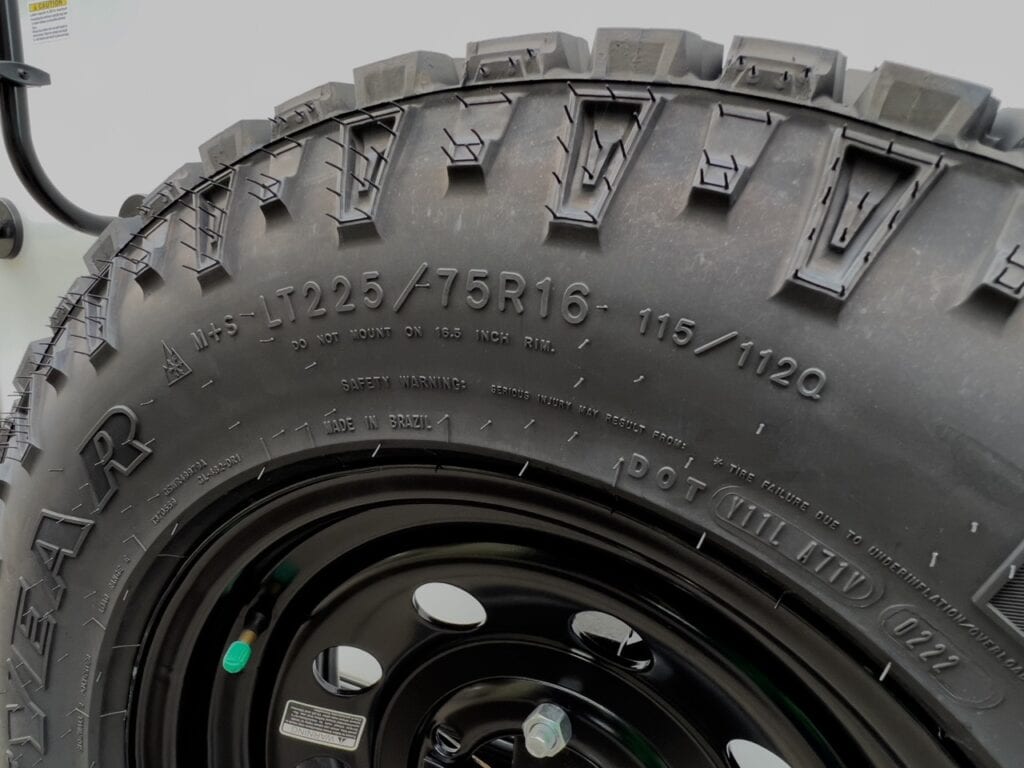
Other Factors
In the real world, a lot of variables go into “How old is too old” for an RV trailer tire. There are more than two dozen components that make up a tire, and not all age at the same rate.
- Heat is the biggest tire killer. If a trailer spends most of its life in the weather conditions of the hot desert southwest, the tires could have a 2–3-year shorter life expectancy than ones under the same trailer used in milder climates.
- How the tires are maintained and stored also makes life difference in a tire’s service life. As noted earlier, improperly inflated tires have a shorter life than those running the recommended air pressure.
- Leaving the tires exposed to the sun’s harmful UV radiation also plays a role in service life. If tires are exposed to too much UV damage, they can become weak and cracked.
- Then there’s driving style. Trailers towed by more aggressive drivers will have a shorter lifespan than those subjected to more docile tow vehicle drivers. That’s due to side loading and heat from the brakes.
In general, travel trailer tires should be replaced every 5–6 years, with close inspection every year before and after each camping season. Your results may vary and may require more frequent replacement. Goodyear has a great reference guide on the topic of RV tire life.
Trailer Axle Alignment
Another factor that can lead to shortened RV tire life and failure is alignment. This is especially true for newer trailers with independent suspensions. It’s also especially true for solid-axle trailers that are subjected to a lot of off-pavement travel. A suspension that’s out of alignment will cause excessive tire wear.
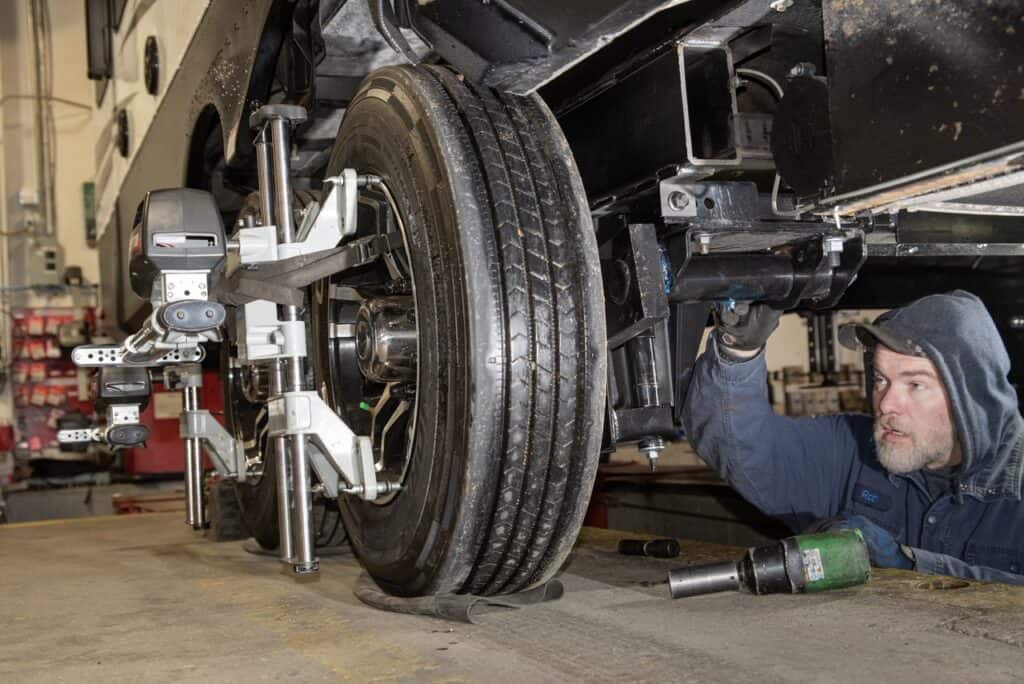
“A trailer or fifth-wheel suspension just 1/4-inch out of alignment over 5,000 miles is the equivalent of dragging your RV sideways for 125 miles,” say service experts at Camping World.
Henderson’s Line-up in Grants Pass, Oregon, does a lot of travel-trailer and motorhome alignment work. “It’s surprising how many customers we get that come in because they were having tire wear issues,” says Tommy Henderson.
“Believe it or not, trailers can also be affected by incorrect axle alignment. We’ve even seen triple-axle trailers where each of the axles was misaligned. And settings such as toe and camber were out of spec as well. Putting the trailer on the alignment rack to bring everything back into spec solved the problem,” Tommy tells us. He adds, “We recommend that trailer/fifth-wheel alignment should be checked every couple years—sooner if you see edge wear on the tire or tires.”
The bottom line with trailer tires, and RV tires in general, is with proper selection, maintenance, and inspection, any RVer should get the maximum service life out of them and avoid costly roadside tire repairs.



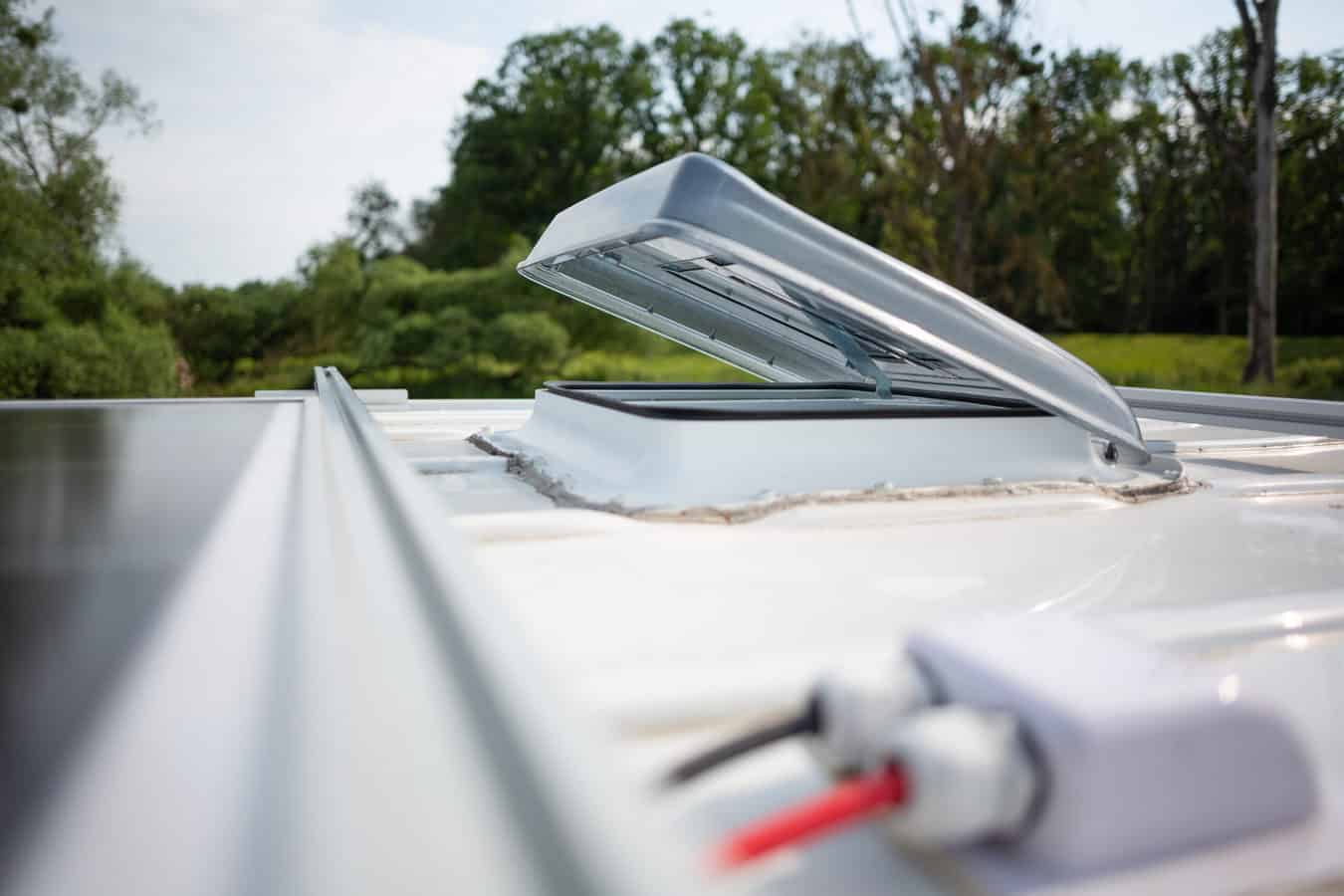
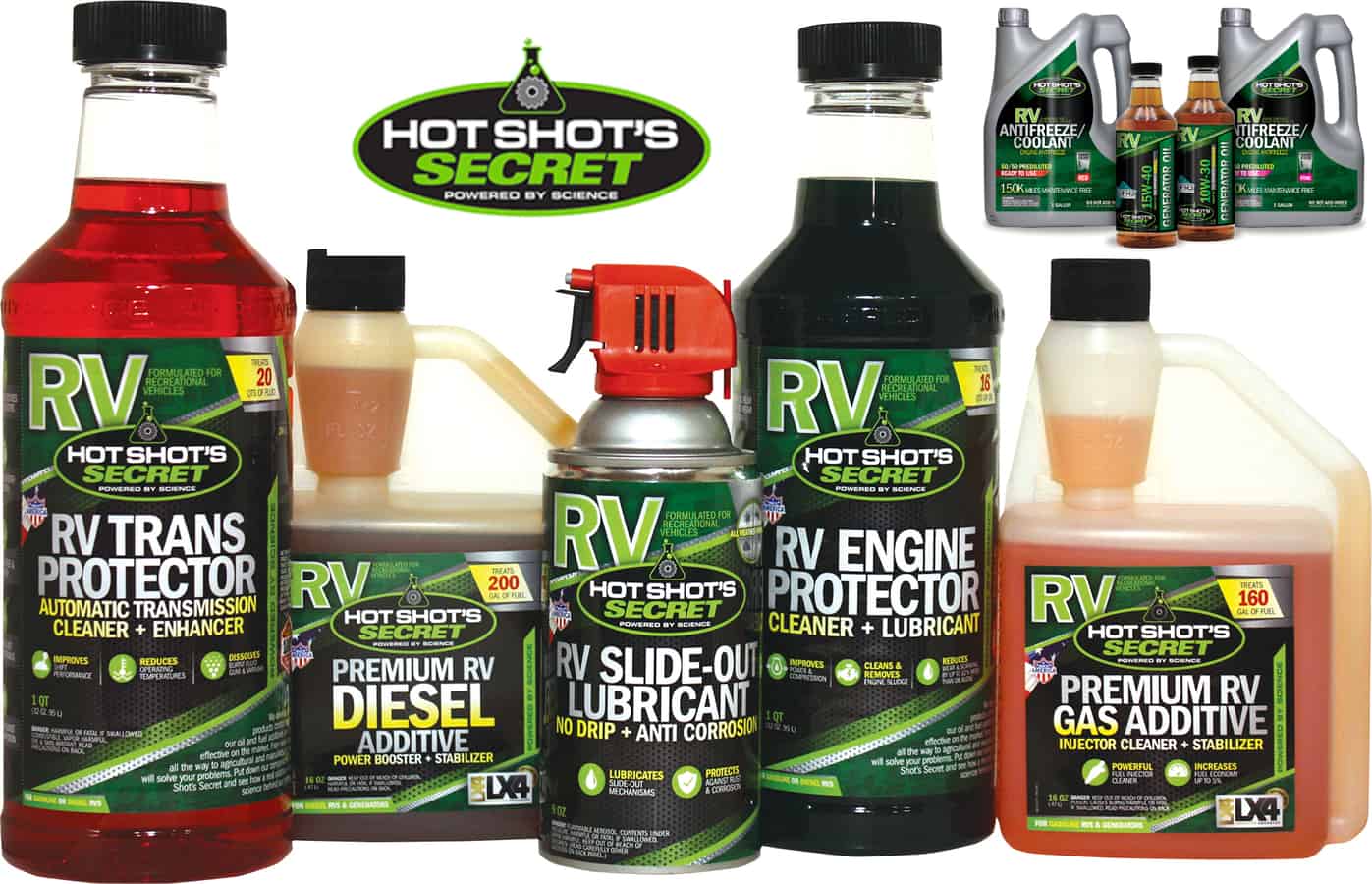
This covered everything except on major thing that became an issue for me. That is the speed rating for the tire. Mine are ‘J’ rated, but not for long. I’m going to change to ‘L’ rating. J= 62 mph, L=75 mph. I lost the tread off my tire after a a run from Waco TX until the incident at Bryant AR. I had been running at about 43 to 44 mph for the trip.
You did not discuss trailer tire rotation, including the spare.
Also, did not talk about TPMS
Why weigh all “4 corners” on an RV Trailer?
Weights and balance. Those will have a direct relationship on load per tire and should improper tire air pressure be out of specs (over or under inflated) you’ll have the ingredients for an undesired situation if nothing other than a potential handling nightmare.
Weights and balance, it’ll have a direct relationship on load per tire and should improper tire air pressure be out of specs at the time you’ll have the receipe for potential problems some of which may be expensive.